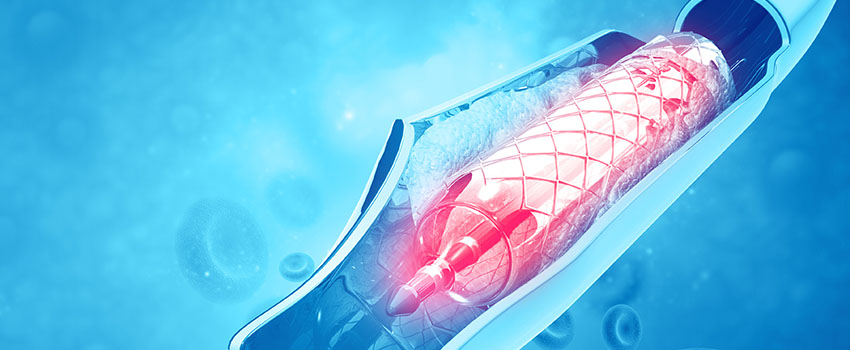
Call Us: 011 475 7654



At Westrand Cardiology Centre, our cardiologists specialise in interventional procedures.
A build-up of cholesterol plaque, otherwise known as atherosclerosis, is one of the most common causes of narrowed or blocked arteries. The arteries are the primary blood vessels that transport blood to and from the heart. When there is a build-up of cholesterol plaque in the arteries, it sticks to the walls and can cause a narrow pathway or complete obstruction, leading to coronary heart disease.
As part of our interventional cardiology procedures, we provide treatments using angioplasty or balloon dilation and percutaneous coronary intervention (stents) to restore the artery pathways.
A coronary angioplasty allows us to widen narrowed or blocked arteries using a small balloon to improve blood flow through the heart. This minimally invasive procedure only requires a light sedative and local anaesthesia.
We will begin the procedure by applying the sedatives and then inserting a plastic sheath or tube into the artery. Next, the specialist will feed a catheter through the artery to the heart under X-ray guidance. Once in place, we use a wire to transport the balloon through the catheter and to the site.
The balloon is then inflated in the blockage or narrowed pathway, expanding the artery walls and allowing for optimum blood flow. This may be accompanied by a stent, depending on your condition.
A percutaneous coronary intervention (PCI) is the formal name for an angioplasty procedure accompanied by a stent. The stent is a short wire-mesh tube inserted into the artery after the angioplasty to prevent the artery walls from collapsing and narrowing.
This procedure is ideal for those who have suffered a heart attack or get frequent blood clots. After treatment, many of your symptoms should subside, and you will be at much less risk of another heart attack.
If you are having the procedure performed at our clinic, you can return home on the same day. However, if you are an inpatient who has suffered a heart attack, you may need to stay in the hospital for a few more days following the procedure.
Rotablation is a procedure whereby we use a tiny drill to remove hardened plaque in the arteries prior to performing angioplasty and PCI. Hardened plaque prevents the angioplasty balloon from inflating, so it is necessary to remove it for the artery to open.
During this procedure, we feed a catheter with a small drill at the end through the artery to the site. The drill uses compressed air to gently remove hardened plaque and widen the pathway. Once complete, the catheter and drill are removed, and the standard angioplasty and PCI procedures can continue.
The procedure is pain-free, apart from some minor pressure in your chest.
Book an appointment